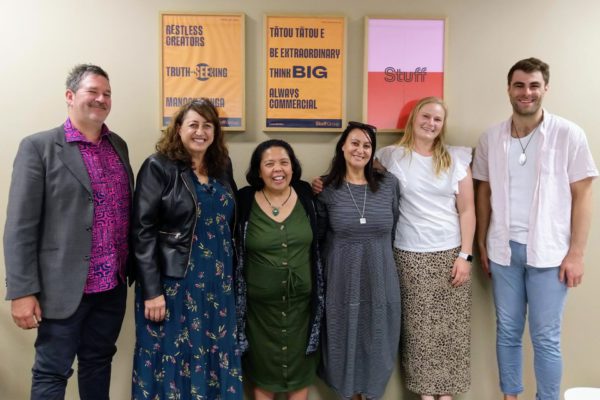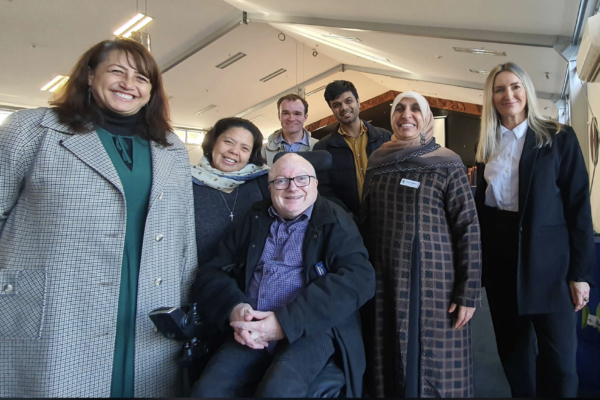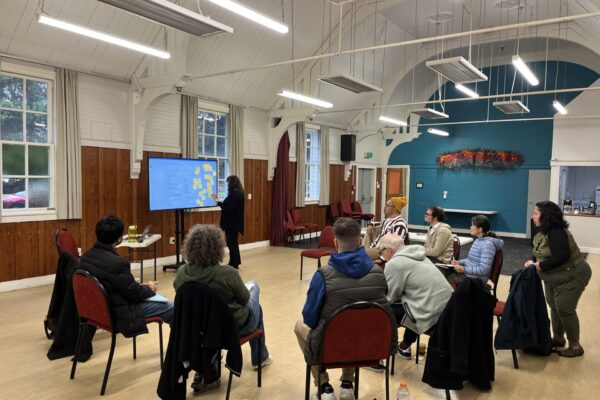Blog post: The future of our media lies in inclusion and trust
 An opinion piece from our Media as Allies group.
An opinion piece from our Media as Allies group.The last month has been challenging for the news media landscape of Aotearoa, New Zealand. Wednesday’s confirmation of Newshub’s closure and TVNZ’s programme cancellations have dealt a severe blow to journalism nationwide.
These events have raised important questions about the future of our news organisations, especially in the absence of increased state support and revenue from digital giants such as Meta and Google.
The rise of social media platforms has complicated consumer relationships with news, as traditional media organisations now compete in a rabid market of attention and clicks. While a power disparity here needs to be addressed, the platforms that disadvantage media groups inadvertently advantaged those whose voices are often left unheard by mainstream news.
New platforms and mediums have created much-needed space for underrepresented groups to share their stories and experiences. However, this opportunity has not come unfettered. Social media has also enabled an increased hostility towards minority groups, where prejudiced and angry voices are active and platformed.
For all of the freedom it declares, social media is not a safe space for all of its communities, and in the absence of regulatory oversight, it has become a breeding ground for extremist views and hate speech.
Although mainstream media has some flaws, it is held accountable to a regulated code of conduct and public scrutiny. Internal journalistic processes ensure factual reporting (albeit sometimes lacking in context).
Newsrooms and fourth estate journalism remain a source of accuracy, and the vacuum caused by its shrinking influence cannot be filled by alternative mediums that hold no obligation to the truth.
The decrease in mainstream news shows puts immense pressure on remaining news outlets to represent our diverse communities fairly and evenly. Considering that the media struggles to proportionately document and share the stories of our minority communities now, it is likely that stripped, survival-mode media organisations will struggle harder to establish diversity and inclusion in our news.
The funding issue
While media organisations rely on consistent returns, they also play a crucial role as the fourth estate in upholding democratic principles.
Mainstream media faces stiff competition from tech giants like Meta and Google, who make big profits without sharing revenue with those producing the content. These companies use news without paying their fair share while taking up the majority of advertising budgets that used to go to media companies.
This power imbalance has hit local and regional news particularly hard, with these sources seeing a worrying decline in their fortunes. It is concerning to note that on the same day that Disney withdrew its funding from Newshub, Meta suspended all payments in Australia under its content-sharing agreement.
What can be done?
Aotearoa is a diverse country, yet newsrooms often fail to represent this reality. Now is an opportunity to change this.
The people and communities in our society inform its economies, and a vast section of New Zealand feels underrepresented or misrepresented by its media. Through the proliferation of dominant storytelling and the neglect of minority communities, there is a missed opportunity to gain a trusting and proud viewership of news that reflects our broader society.
Media reporting and storytelling have the power of creating narratives and common perceptions of different groups. Moving forward, we must acknowledge and remedy systemic processes that create and perpetuate stereotypes of Aotearoa’s minority communities.
To achieve this, media organisations must ensure diverse voices are present inside and outside the newsroom. Acknowledging and identifying the patterns that propagate stereotypes is essential in earning the trust of minority communities, who are prone to receiving unfair narratives.
As a public good, news media requires public support, including state funding for current affairs and long-form journalism. We strongly advocate for social media companies to pay their fair share to news companies in New Zealand. The enormous disparity between social media giants and local media makes state intervention imperative. With regulation, social media companies will likely negotiate with regional players in good faith.
By unshackling news media from the preoccupying concerns of revenue and profit, we could create space to form and strengthen relationships between media and communities. Regaining public trust in media is essential for belonging and democracy in our country, and it starts with including the voices of those not heard.


